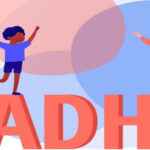Mental health conditions like bipolar disorder and schizophrenia, long perceived as primarily affecting adults, are increasingly recognized in children and adolescents.

This early onset presents a unique set of challenges for diagnosis, treatment, and long-term management. Understanding these complexities is crucial for families, educators, and healthcare providers to ensure young individuals receive the timely and comprehensive care they need. Furthermore, many of these challenges, particularly concerning treatment adherence and the need for robust support, extend into adulthood, impacting overall quality of life.
The Emerging Reality: Early Onset in Children and Adolescents
The notion that serious mental illnesses such as bipolar disorder and schizophrenia only manifest in adulthood is outdated. Clinical experience and research now confirm that these conditions can, and do, appear at much younger ages. This early emergence, often termed “early-onset,” can significantly disrupt a child’s development, education, social interactions, and family life if not addressed appropriately.
Challenges in Diagnosing Youth:
Identifying bipolar disorder and schizophrenia in children and adolescents is fraught with difficulties:
- Overlapping Symptoms: The symptoms can mimic or overlap with other common childhood conditions like Attention-Deficit/Hyperactivity Disorder (ADHD), autism spectrum disorder, or even typical adolescent mood swings. This makes differential diagnosis complex.
- Misinterpretation of Behavior: Early warning signs might be dismissed as “just a phase,” সাধারণ কৈশোরকালীন আচরণ (sadharon koishorkalin achoron – common adolescent behavior), or behavioral issues rather than indicators of an underlying mental illness.
- Communication Barriers: Children, especially younger ones, may struggle to articulate their internal experiences, thoughts, and emotions, making it hard for caregivers and clinicians to grasp the nature of their distress.
- Lack of Awareness: Insufficient public and sometimes even professional awareness about early-onset bipolar disorder and schizophrenia can lead to delayed recognition and intervention.
- Limited Standardized Approaches: There’s a comparative scarcity of research and standardized management protocols specifically tailored for pediatric populations with these conditions compared to adults.
The Far-Reaching Impact on Young Lives
When bipolar disorder or schizophrenia takes root in childhood or adolescence without proper intervention, the consequences can be profound:
- Educational Disruption: Concentration difficulties, fluctuating energy levels, social withdrawal, or behavioral problems can severely hinder academic performance and school attendance.
- Strained Relationships: The symptoms can strain relationships with family members, peers, and teachers, leading to social isolation.
- Developmental Delays: The conditions can interfere with the normal trajectory of emotional, social, and cognitive development.
- Increased Risk Factors: Untreated early-onset conditions can increase the risk of substance abuse, self-harm, and suicidal ideation.
Treatment Pathways: A Holistic and Comprehensive Approach
While bipolar disorder and schizophrenia in youth are chronic conditions, effective treatments can significantly help manage symptoms and improve quality of life. A comprehensive approach is essential:
- Accurate Diagnosis: This is the cornerstone, requiring careful assessment by mental health professionals specializing in child and adolescent psychiatry.
- Medication Management: Pharmacological treatments are often necessary to stabilize mood, manage psychosis, and reduce symptom severity. These must be carefully prescribed and monitored for efficacy and side effects.
- Psychotherapy: Various therapeutic modalities can be beneficial. Cognitive Behavioral Therapy (CBT), Dialectical Behavior Therapy (DBT) adapted for adolescents, family-focused therapy, and individual counseling can help young people develop coping skills, manage emotions, and improve interpersonal functioning.
- Educational Support: Accommodations and support within the school environment are often crucial.
- Lifestyle Adjustments: Regular routines, adequate sleep, stress management techniques, and a healthy diet can support overall well-being.
With consistent and appropriate management, children and adolescents can learn to navigate their conditions, leading to recovery and the ability to live productive and fulfilling lives.
The Critical Hurdle: Treatment Compliance
One of the most significant challenges in managing bipolar disorder and schizophrenia, both in youth and adults, is treatment compliance or adherence. This refers to consistently following the prescribed treatment plan, including taking medication as directed and attending therapy sessions.
Barriers to Compliance in Youth:
Several factors contribute to non-compliance in younger individuals:
- Stigma: The fear of being labeled or ostracized by peers or even family can lead to denial or hiding the condition and resisting treatment.
- Lack of Insight: Children and adolescents may not fully understand their illness or the need for ongoing treatment.
- Medication Side Effects: Some medications can have side effects that young people find intolerable.
- Parental Factors: Parental denial, stigma, lack of understanding, or concerns about long-term medication effects can also contribute to non-adherence.
Conversely, good treatment compliance in youth is linked to fewer relapses, improved social relationships, better educational outcomes, and greater consistency in fulfilling age-appropriate responsibilities.
The Unsung Heroes: The Role of Support Systems
Family and the immediate environment – the primary support system – play an indispensable role in the recovery journey of children and adolescents with bipolar disorder and schizophrenia. This support offers:
- Emotional Stabilization: Providing a safe, understanding, and nurturing environment.
- Psychological Strengthening: Reinforcing coping strategies and self-esteem.
- Improved Treatment Adherence: Encouraging and facilitating regular treatment, medication intake, and therapy attendance.
- Reduced Stigma and Isolation: Advocating for the child and fostering an inclusive atmosphere.
- Academic and Social Recovery: Helping the child reintegrate into school and social activities.
For families to be effective, they must be willing to educate themselves about the conditions, actively participate in the management plan, and serve as consistent allies for their child. This requires an eclectic, holistic, and multidisciplinary approach involving healthcare providers, educators, and the family unit.
Adult Challenges: The Journey Continues
The struggles with bipolar disorder and schizophrenia extend into adulthood, often with patterns and challenges established earlier in life or emerging for the first time between late adolescence and the early 30s.
- Bipolar Disorder in Adults: Characterized by extreme shifts in mood, energy, and activity levels, typically cycling between manic (or less severe hypomanic) episodes and depressive episodes. These fluctuations can severely impact daily functioning, work, and relationships.
- Schizophrenia in Adults: Symptoms can include hallucinations (seeing or hearing things that aren’t there), delusions (fixed false beliefs), disorganized thinking, and significant changes in behavior, all of which can impair social and occupational functioning.
Treatment Non-Compliance in Adults:
Non-adherence to treatment remains a major issue for adults, often leading to:
- Higher rates of relapse.
- Increased hospitalizations.
- Greater risk of suicide (especially in bipolar disorder).
- Worsening of chronic symptoms and increased risk of harm to self or others (in schizophrenia).
Reasons for adult non-compliance often mirror those in youth but may also include poor insight into the illness, intolerable medication side effects (such as sedation, weight gain, or movement problems), mood fluctuations affecting motivation, and persistent societal stigma. The good news is that newer, innovative medications often have more manageable side effect profiles.
Fostering Productivity and Quality of Life in Adults
Despite the challenges, adults with bipolar disorder and schizophrenia can lead productive and meaningful lives with consistent treatment and support. Key strategies include:
- Adaptive Coping Mechanisms: Learning and utilizing healthy strategies to manage stress, solve problems, and seek support.
- Psychosocial Therapies: Engaging in psychoeducation about their illness, regular screening for suicidal ideation, and therapies tailored to their needs.
- Leveraging Technology: Utilizing apps for mood monitoring, sleep tracking, medication reminders, and accessing telehealth or online therapy.
- Family and Environmental Support: Psychoeducation for families helps them understand and support their loved ones, fostering empowerment and social inclusion.
Ultimately, successful long-term management hinges on a collaborative effort between the individual, their healthcare providers, and their support network. Open communication, ongoing education, and a commitment to the treatment plan are paramount for navigating these complex conditions and enhancing the quality of life for all affected individuals, from childhood through adulthood.








